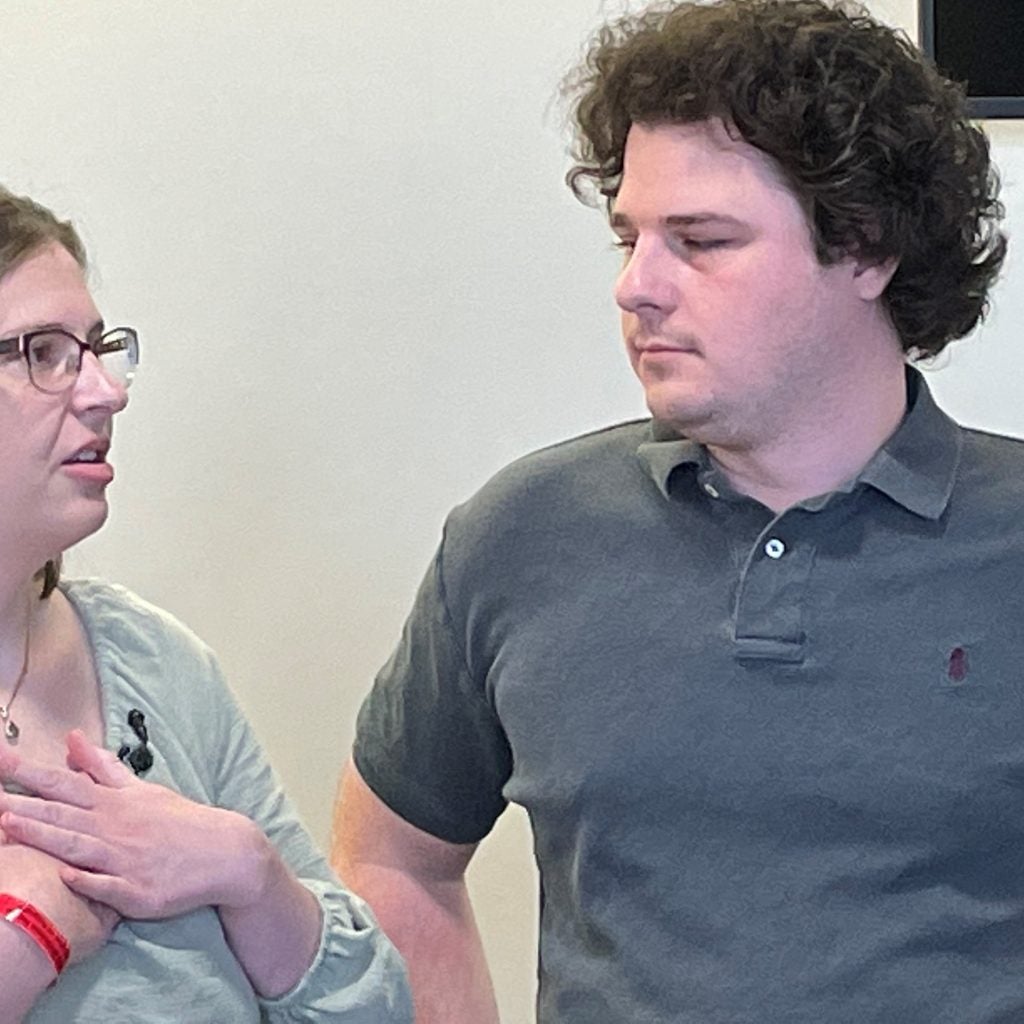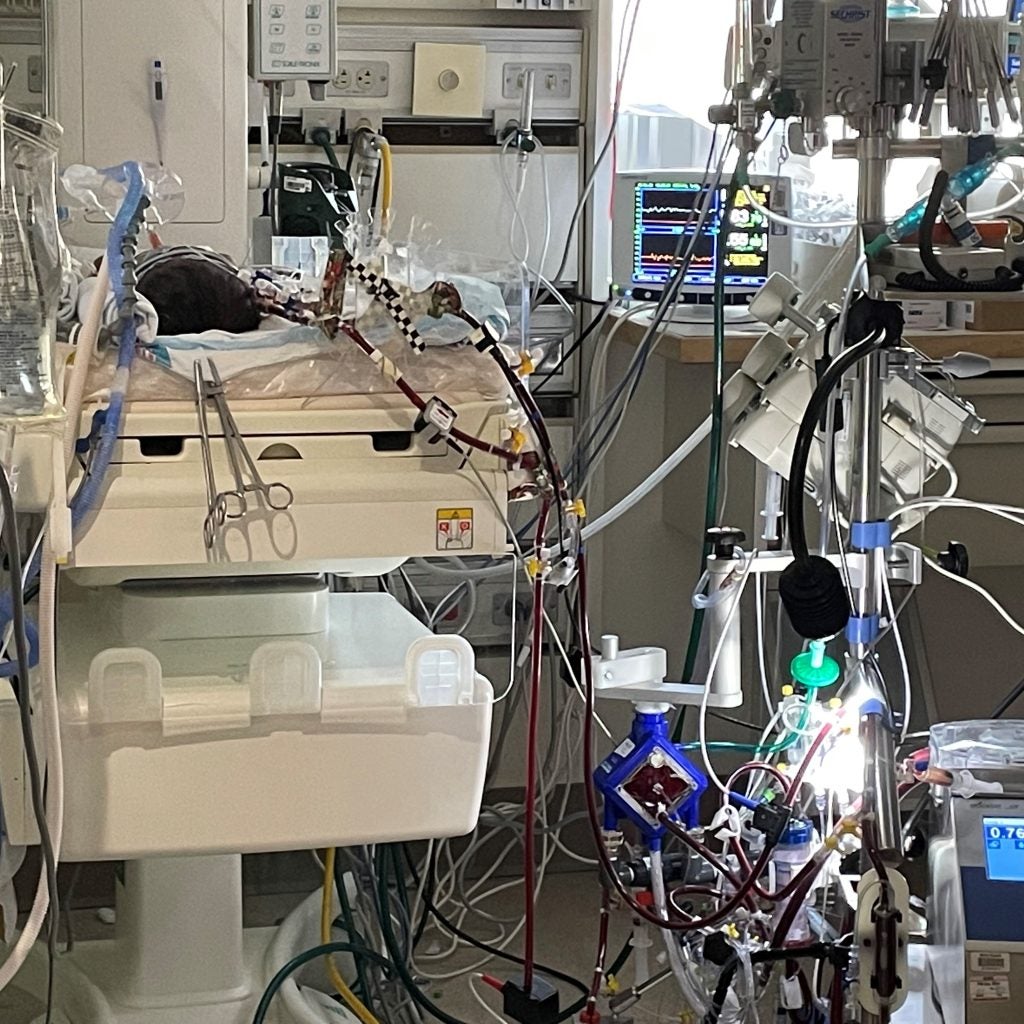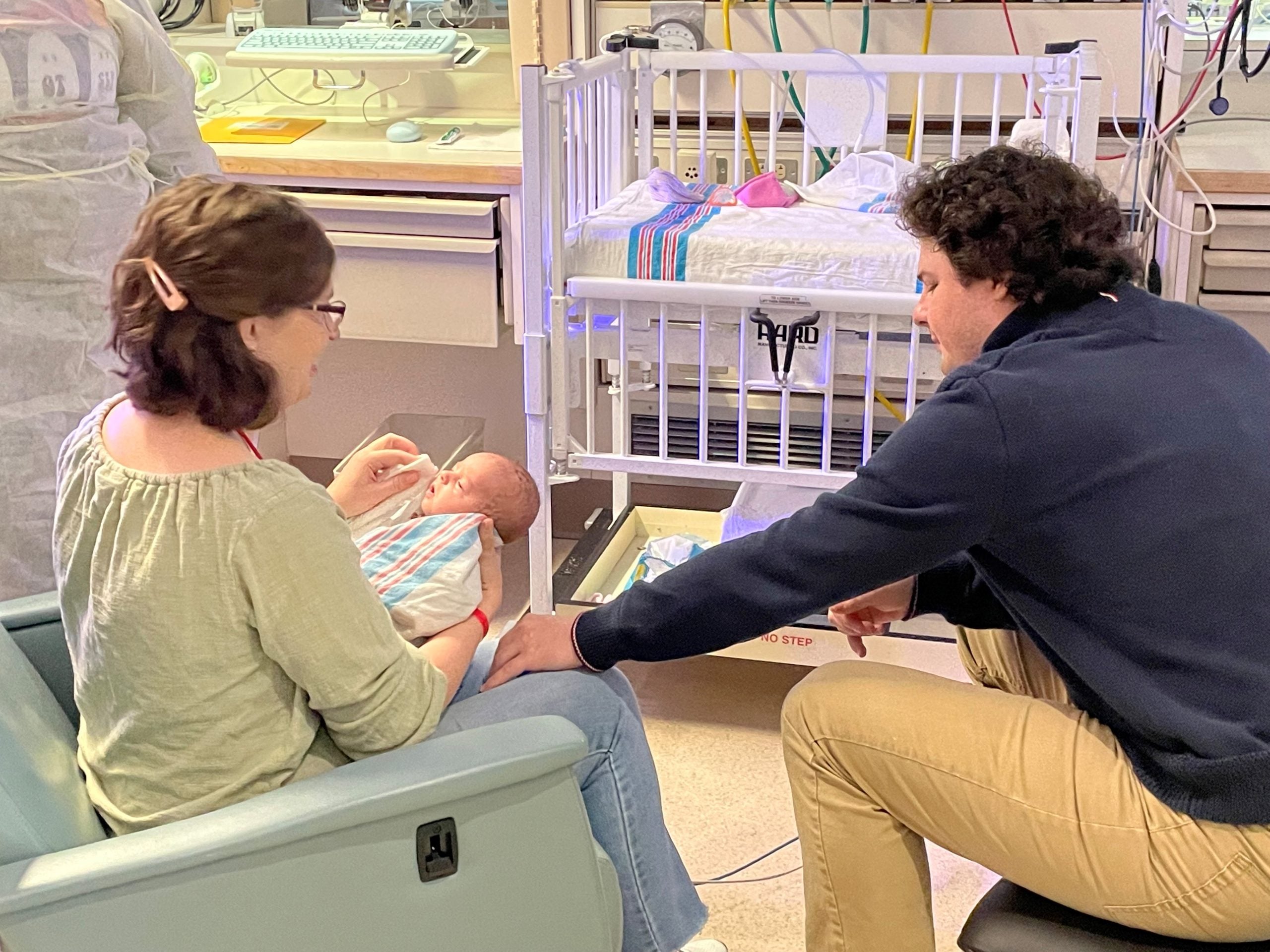Vera Langston, the latest addition to the family of Irmo, S.C., couple Laura and Dalton Langston, has come out the other end of her first 13 days with a promising future that defies a harrowing first 24 hours.
“We started with a pregnancy that was perfectly healthy by all accounts,” said Laura Langston. “No risk factors flagged or anything. She was born a few days after her due date.”
Not long after giving birth to her daughter in what her OB/GYN called a textbook delivery, medical specialists had to whisk away the newborn to a special care unit to address breathing issues she was having. Her father, Dalton Langston, had not even had a chance to hold their new baby.
The Langstons stayed behind so that Laura could recuperate from giving birth while baby Vera was transferred. The hospital where she was born did not have a neonatal intensive care unit. News got worse over the course of the infant’s first day, as treatments and interventions failed.
MORE: Medical students don white coats in ceremony

“She just kept cascading down, and they weren’t sure what was happening,” Laura Langston said. “But she was in a crisis. And so, by morning, we were told, ‘We’ve done all we can for her at this facility.’”
Vera was in critical condition, born with pulmonary hypertension. An ambulance transported her to Augusta to be treated at the Children’s Hospital of Georgia’s neonatal intensive care unit.
There, neonatologist Dr. Brian Stansfield explained to the couple both how dire the situation was and the fact that Vera was at the right place.
Physicians ultimately determined that the baby needed to be treated with extracorporeal membrane oxygenation, or ECMO.
“It allows babies in our case to rest their heart and lungs to allow that work to be done in an artificial circuit,” said Stansfield, explaining the process of the ECMO machine. “Blood is removed from the body, circulated by an artificial heart, and oxygen is placed into the blood through an artificial lung and then put back in.”
Dalton Langston recalls researching the baby’s condition and treatment options and realizing that the ECMO treatment was the last resort.
“I just couldn’t believe that we were at that point,” he said.
But the confidence of the Stansfield and the hospital staff helped both sustain their hope.
“It was a whirlwind, but every step of the way she was receiving all the care that she needed,” said Dalton Langston.
Vera was on the machine for about four days during which her condition quickly turned around. Stansfield was already optimistic, seeing good potential signs for recovery even during the worst, before deciding to use the ECMO machine.

MORE: Program brings the hospital to home
As of this writing, the Dr. Stansfield and the Langstons expect Vera to be able to go home this week. Dalton and Laura are eager to introduce the newborn to her three-year-old big sister and the family dogs.
“We expect there to be a happy healthy, five year old,” said Stansfield about the infant’s recovery long term.
Stansfield notes that calls for ECMO treatment are not infrequent, especially considering that the Children’s Hospital is one of the few facilities in the state that are equipped with the specialized bypass machine.
While his confidence in the competency of the neonatal unit’s staff is certainly high, Stansfield attributes the success in treating baby Vera to philanthropy. The Children’s Hospital was able to acquire the ECMO equipment due to a $350,000 contribution from Andy and Connie Jones of Gerald Jones Auto Group.
“Just six months ago, we might have had to think differently about the Vera,” said Stansfield. and the support for the Children’s Hospital. “My encouragement to the community is to remember your children’s hospital right here in the city of Augusta. We get to tell stories by parents because of donations of time, money and resources to the Children’s Hospital of Georgia.”
Skyler Q. Andrews is a staff reporter covering business for The Augusta Press. Reach him at skyler@theaugustapress.com.











